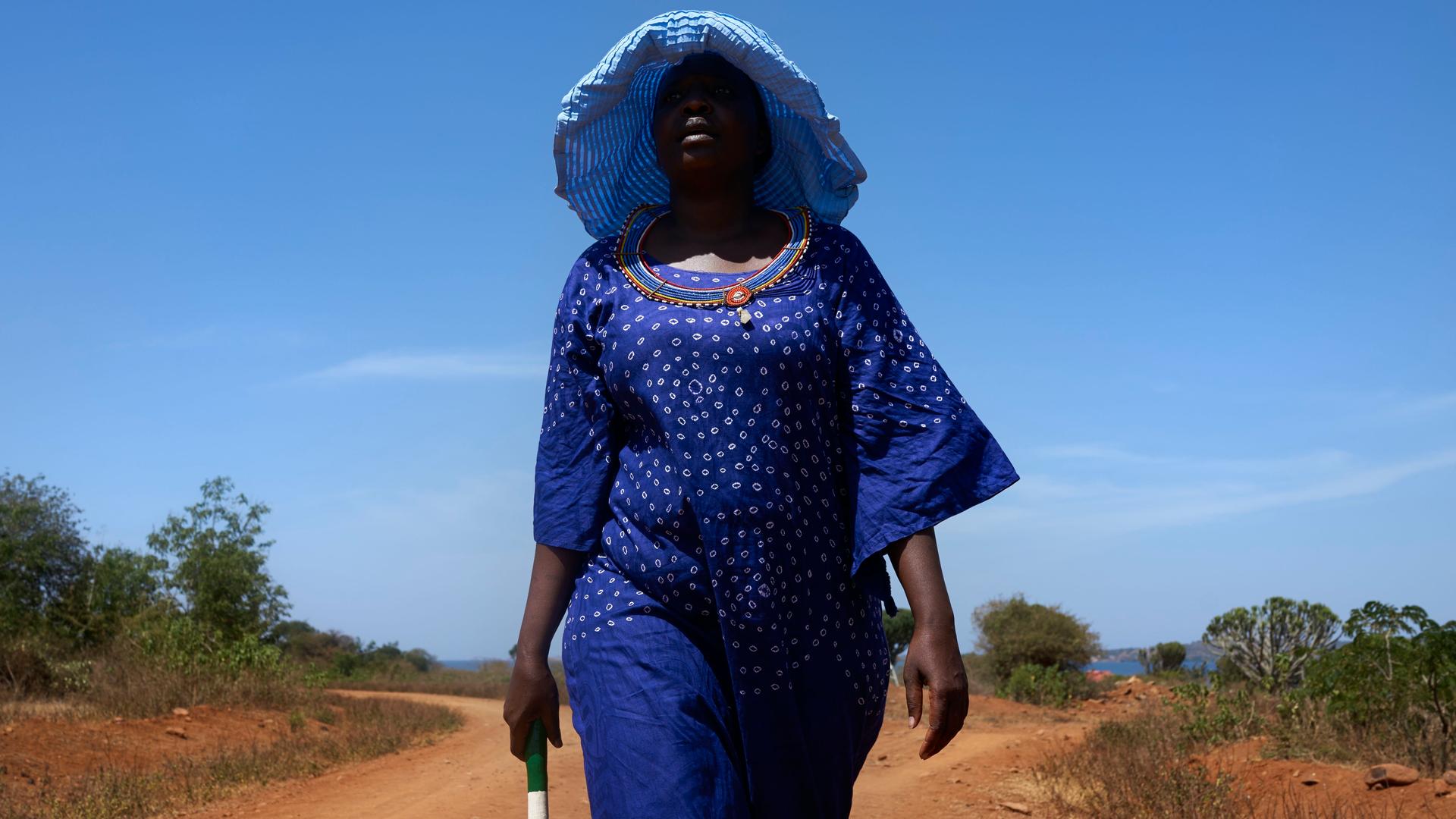These Kenyan widows are fighting against sexual ‘cleansing’
Roseline Orwa walks with her rungu at her side — a stick male chiefs usually carry around to announce their presence.
When Esther Atema’s husband died, she was treated like dirt. People suddenly looked at her funny — villagers shouted, “Witch!” as she walked past. The local boys in Siaya County, southwest Kenya, would get drunk and chase her down the road. If they caught her, they’d beat her to a pulp.
At 35 years old, she had become a widow. And, in some rural parts of Kenya, widowhood means you’re of little value. Culturally, widows are considered impure, and tradition dictates that they must be cleaned — or “cleansed” — of their partners’ death. The aim is to chase away the demons; the ritual requires women to have sex — either with a relative or stranger.
Sure enough, one year after his death, Atema’s late husband’s family forced her to go through the cleansing process.
“I was very afraid,” she said. Atema has a kind, round face and stared off somewhere into the distance before touching on a universal emotion: “And I was still heartbroken [over my husband].”
The order can vary slightly but the ceremony typically goes like this: You begin by having sex on the floor. In the morning, you burn your clothes and the sack you slept on, and the man shaves the widow’s hair. Sometimes, it happens outside, in front of the house — where the whole neighborhood can see. Together, you slaughter a chicken (a staple in the diet here), which you cook and eat. The ceremony lasts three days but can be drawn out for up to seven.
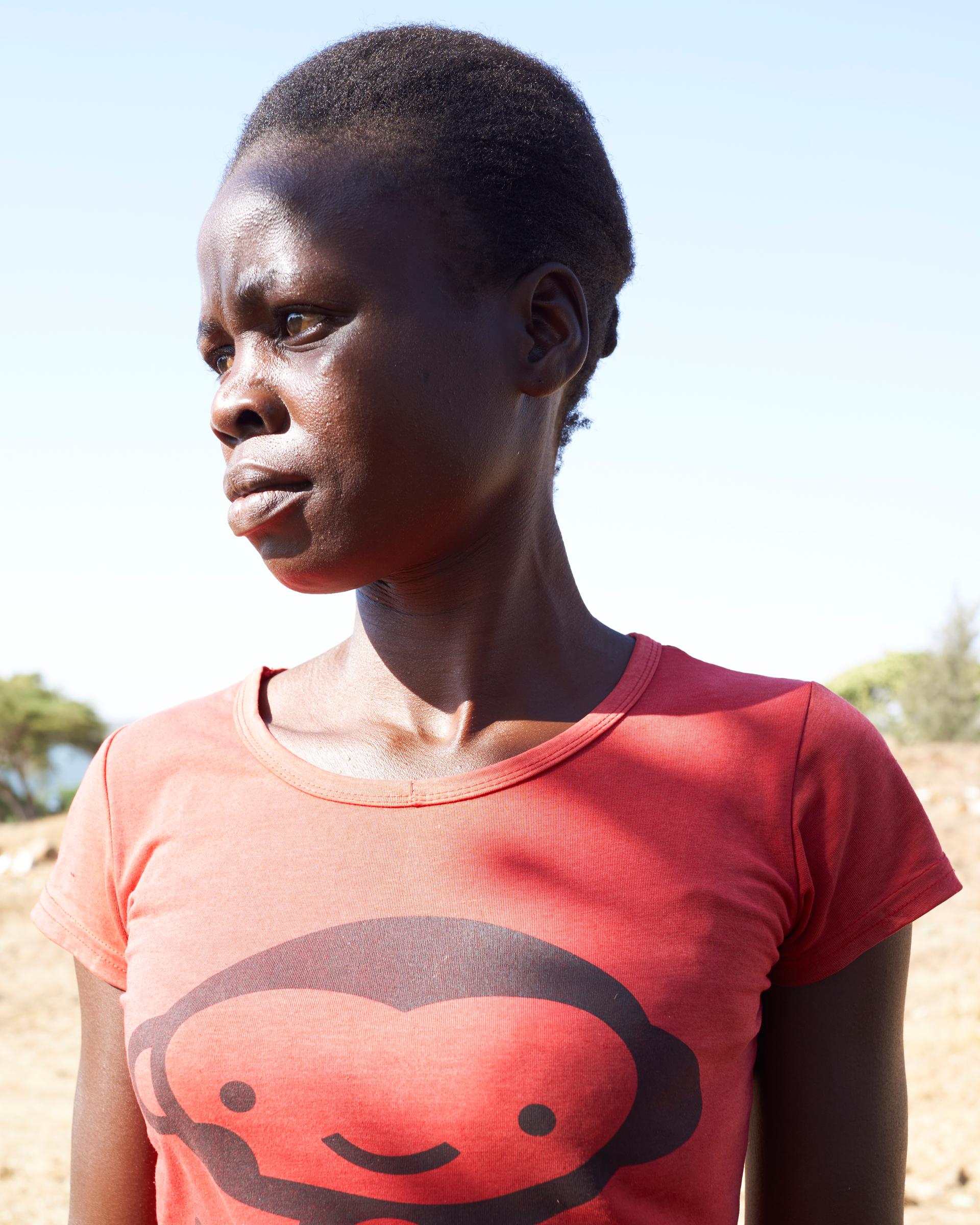
“I felt humiliated,” said Atema. “But I was told my children would die if I didn’t go through with it.”
If you refuse to be cleansed, you’re shunned from society. Women, like Atema, believe their children will be harmed, and that going uncleansed will block any chance of future marriage. But in a society rife with HIV and AIDS, despite improvements, accepting means you run the risk of disease — using a condom doesn’t complete the ritual properly so people go without.
After the cleansing, the widow is traditionally inherited, whereby she marries another man (usually a brother-in-law). Yet, she still has no rights — and millions of widows across Africa are kicked out of their homes by their in-laws, robbed of their property and made vulnerable to rape.
“Why don’t women have a choice?” said Atema, now 40. “You don’t know who this person is; they could hurt or kill you. No one checks if they’re HIV-free.”
While issues like female genital mutilation (FGM) often hit headlines, widow abuse is a huge, largely overlooked, problem. According to the Loomba Foundation’s 2015 Report, there are more than 258 million widows worldwide, and nearly 10 percent of them live in sub-Saharan Africa.
Related: In India’s Dawoodi Bohra community, there’s a growing debate about FGM
Prejudice against widows plays out in different ways all over the world. In India and Nepal, for example, a woman is often accused of causing her husband’s death. She isn’t allowed to look at another person as her gaze is considered bad luck, like a literal death stare. Many widows, like Atema, are forced to have sex with a stranger, while in some Nigerian communities, the widowed wife has to drink the water her dead husband’s body was washed in, or sleep next to his grave for three days.
Ritual cleansing has been reported in 17 countries in sub-Saharan Africa. The stigma stems, says Karen Brewer of Widows Rights International, from the notion that men are stronger than women.
“If a man dies, it can’t just be because he’s old,” she said. “The woman must have done witchcraft against him. It’s superstition but people who are educated in these communities realize things can be done differently.”
One of those people is Roseline Orwa. She’s among a growing number of widows’ rights activists in Kenya pushing for change. In the fishing village where she grew up, on the windy shores of Lake Victoria, she heads up a women’s group that is fighting the practice.
By 32, Orwa had been divorced and widowed. Educated in Nairobi and economically independent with her own textiles business, she refused to be cleansed or inherited and escaped the usual stigma that stalks widows’ lives.
But her village in Siaya County was filled with death. Not only were widows abused, but the community was devastated by HIV and AIDS. Aside from being inhumane, widow cleansing and inheritance are a “virtual death sentence,” fueling the transmission of HIV across the continent. The region has one of the highest rates in Kenya — few men live past 40. In the last four months alone, Orwa says, 14 young men have died from HIV in the village.
It became obvious that a support group was needed. So, in 2012, Orwa set up the Rona Foundation to help the widows she saw suffering. The center provides loss and grief counseling, financial support and teaches entrepreneurial skills.
Dressed in an ankle-grazing dress and floppy, oversized blue hat, Orwa is an imposing figure. When roaming the village, you’ll see her swinging a rungu from side to side — a stick that historically only male chiefs carry. It’s intimidating because it’s supposed to be. “The men must know their leader is around,” Orwa said.
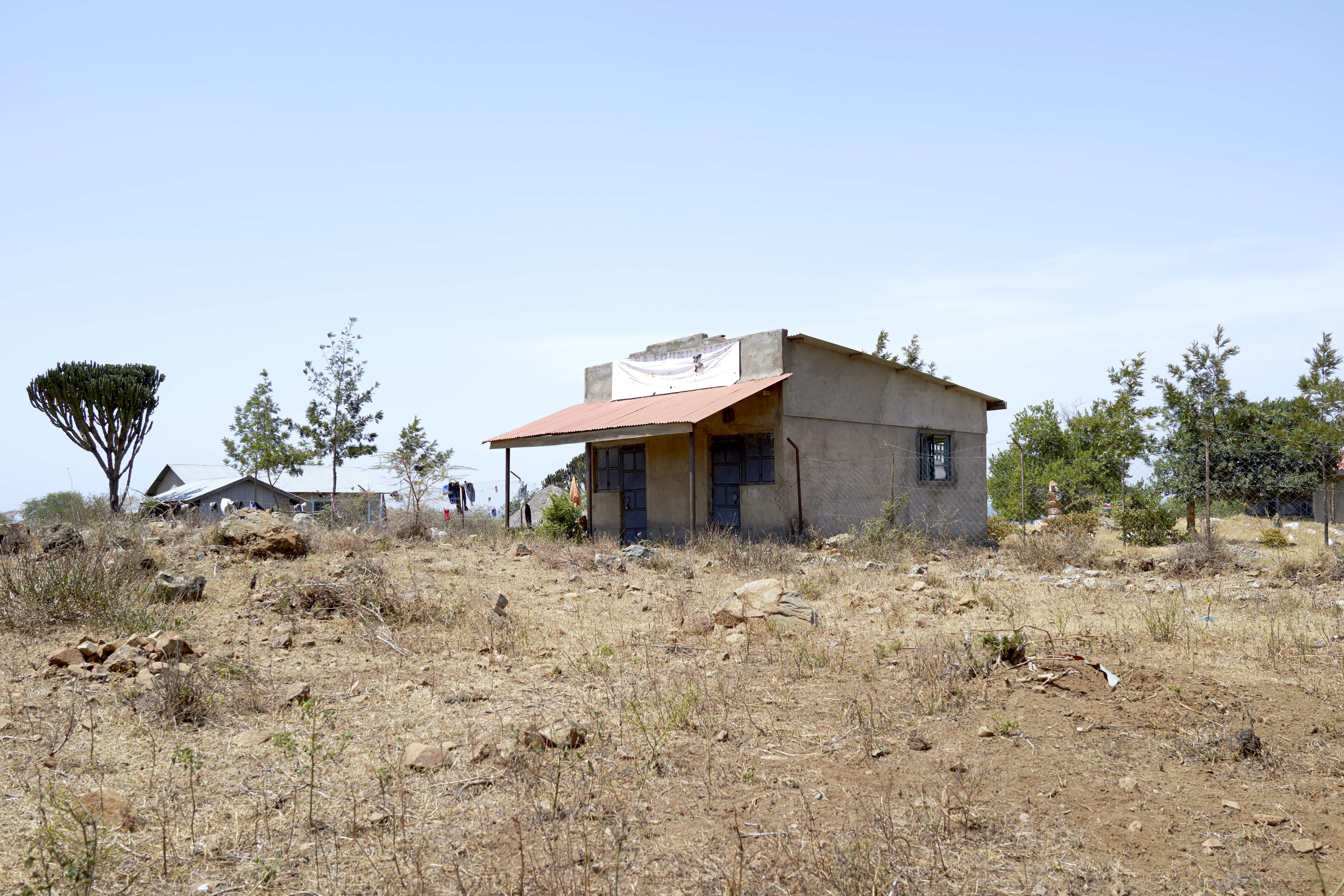
In 2015, she helped outlaw widow cleansing in the country under a domestic offenses bill, though few in rural areas know it exists (or they do and adhere to the tradition anyway, out of fear of being ostracized). So, today, the practice still persists in rural Kenya. Having firsthand experience of widowhood puts Orwa in a unique position — she’s able to understand the challenges that many women around her face. At the same time, she’s powerful enough to do something about it.
“I will not allow you to come into my house at night and rape me in the name of cleansing,” she said. “Why do we tell women: Don’t do anything, sit pretty and wait until we molest you, until we make you lose your dignity and value?”
Thirty-year-old Eunice Odhiambo says the center saved her life in some ways. She was widowed 11 years ago, and pressured into being cleansed nearly three years ago, but still lives with the man who cleansed her.
“I love him,” she said, looking at her hands. But it took “a long time for me to get there.”
Related: Tens of thousands of married women in Uganda are secretly undergoing ‘the cut’
Not only did the center build Odhiambo’s house and pay for her children’s school fees, but she’s also now more aware — and vocal — about her rights.
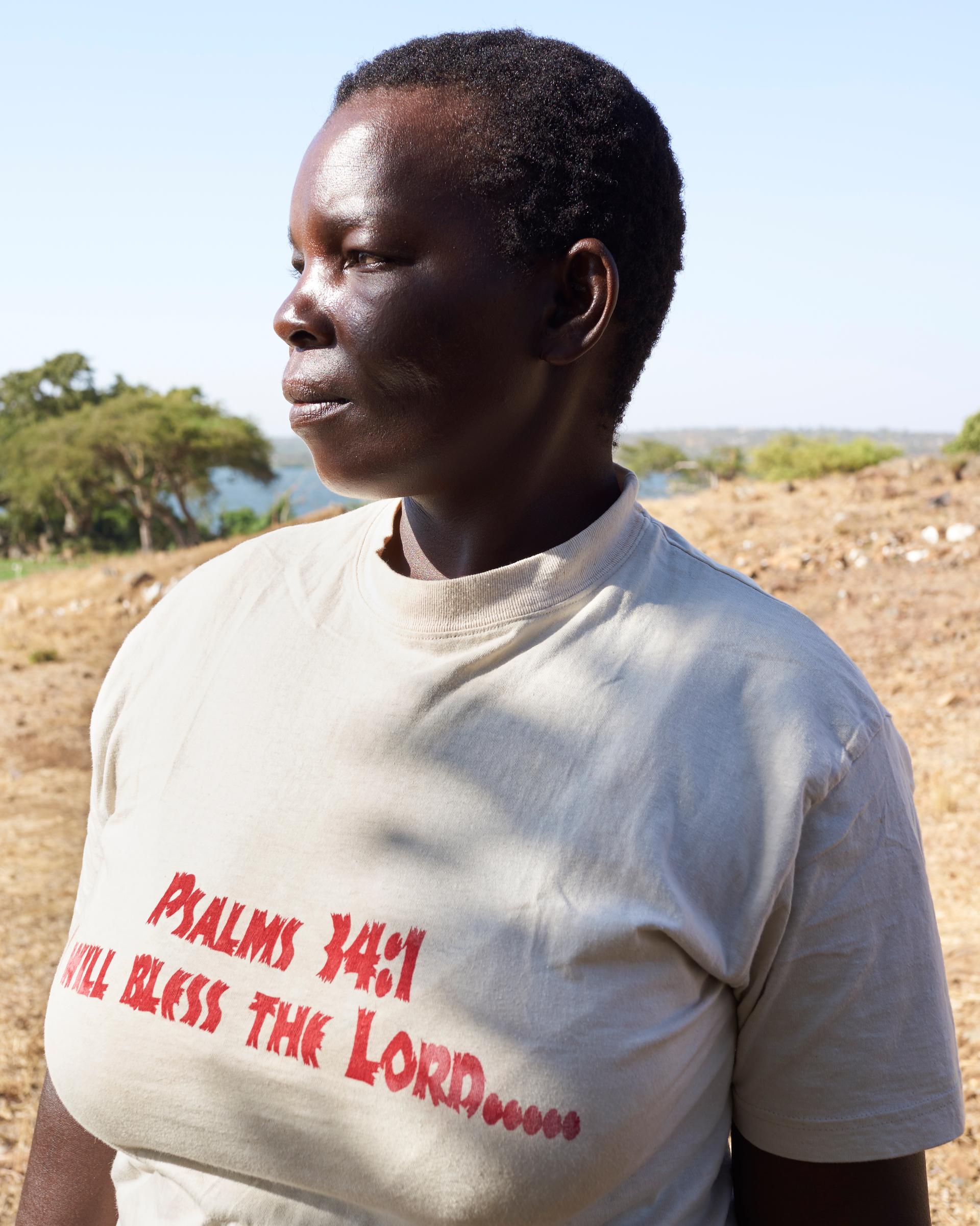
“Women should be allowed to stay on their own after their husband has passed away,” she said. “Cleansing needs to stop.”
Orwa’s focus is not, however, solely on widows. In rural villages, men are the decision-makers. What the male elders say is final, meaning they hold all the power. So, Orwa also holds therapy sessions for the men, in the hope of re-educating those involved in the process.
“In the beginning, I was like, ‘Men are the problem,’” she said. “But after some time, I realized, these men are the key. They’re the ones who choose to do the ceremonies, and who will be paid.”
Emmanuel, 40, who did not give a last name, is currently living with Odhiambo — he’s the same man who cleansed her. Theirs was a happy ending, of sorts. The pair ended up falling in love but he says the associated stigma is tough to deal with: “Society doesn’t support widows — and that affects me, too. The counseling sessions help me deal with being an outcast. It means I don’t think too much.”
For men like Emmanuel, becoming a cleanser comes with a huge financial incentive. You can receive up to $260 for cleansing. And in a country where the monthly minimum wage is $13, it’s a tempting offer.
Emmanuel is happy with Odhiambo, but wouldn’t object to cleansing another woman.
“If someone offers you 20,000 Kenyan shillings [$195] to have sex with someone, you’re going to do it,” he said.
The tradition is so culturally ingrained that some widows actively pursue their own cleansing. While some women, like Atema, are forced into it, others think it’s essential. They can’t till their land or sow their crops until they’ve enlisted the services of a cleanser. It’s therefore common to see older widows with money and land seeking out younger men from poorer backgrounds.
Philip Adunoga, 30, says he was trapped into a relationship. A woman in his village lent him a bicycle, which he used to collect water every day. One day, she took the bike and refused to give it back until Adunoga went home with her.
He was 13 years old at the time — she was 30. And Adunoga was desperate — it was his family’s only source of income.
“I knew she was a widow, but I didn’t realize I was cleansing her,” he said. “At first, you think it’s normal, but then I realized I was being manipulated. I became a houseboy. I dropped out of school because I was doing so much work for her.”
Adunoga takes part in the forums and encourages other men to use protection, get tested for HIV and talk to the woman they’re about to cleanse.
“At first, no one listened, but we are trying to make them understand that dialogue is the best way — if you’re going to cleanse, have a chat and see if you both agree to use contraception,” he said.
The setup is complicated, but clearly, both men and women are suffering. And while the plight of the male cleansers is, arguably, as heartbreakingly complex as that of the widow, Orwa is hopeful. The young guys are becoming increasingly supportive after witnessing how easily they can become victims.
“The men see that times are changing and therefore customs have to change,” she said.
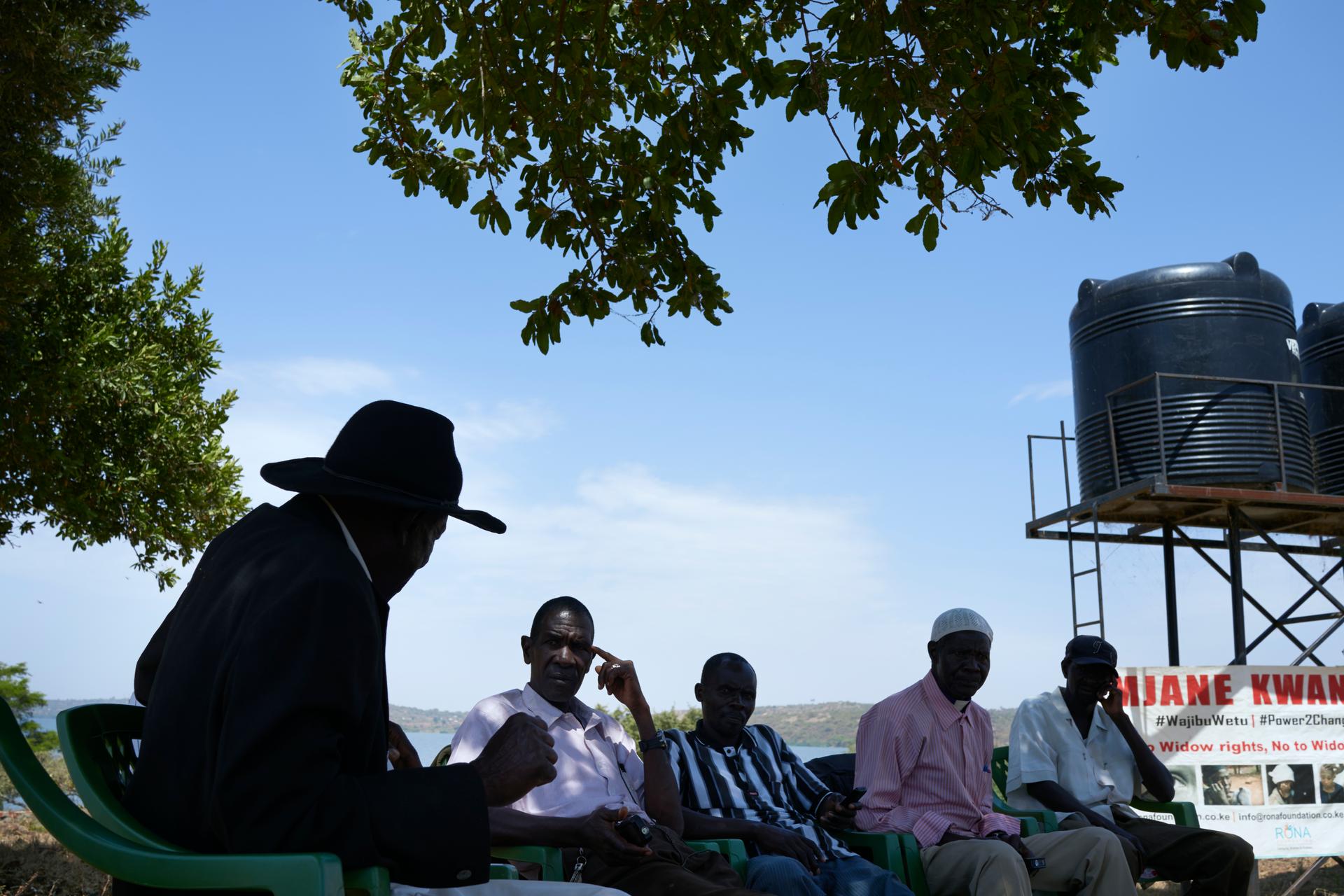
It’s not impossible, either. In Zimbabwe, instead of having sex with an in-law, many widows offer a bowl of water if they want to stay with the family. In Siaya County, they’re encouraging the widows to offer a meal to elders and in-laws. Remove sex from the equation and not only do you prevent abuse from taking place, but you also reduce the spread of HIV and AIDS.
For now, Orwa is taking it one day at a time.
“We’ve got people to open up and talk,” she said. “A tiny step, but if just one widow and one man change? Then we’ve got a revolution.”
This story is part of a European Journalism Centre project about men engaging in the fight for women’s rights.
Our coverage reaches millions each week, but only a small fraction of listeners contribute to sustain our program. We still need 224 more people to donate $100 or $10/monthly to unlock our $67,000 match. Will you help us get there today?
